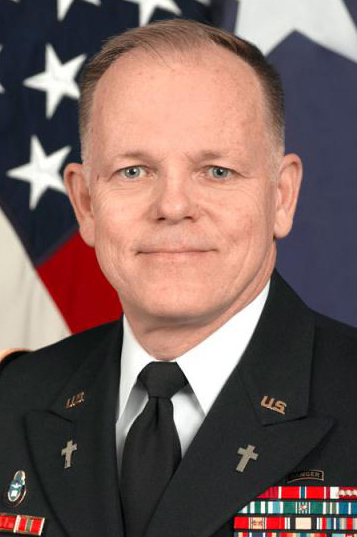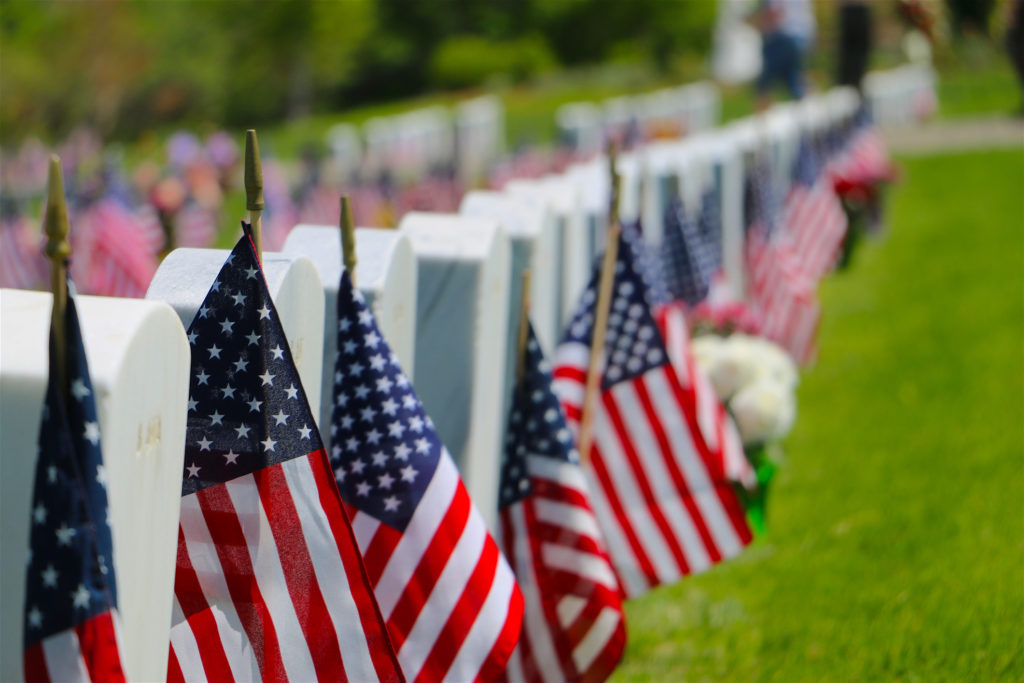
 ALPHARETTA, Ga. (BP) – Memorial Day 2021 will be radically different than its annual observance 12 months ago. This time last year our nation was struggling against the deadly coronavirus pandemic, a global plague that has taken the lives of more than 600,000 Americans.
ALPHARETTA, Ga. (BP) – Memorial Day 2021 will be radically different than its annual observance 12 months ago. This time last year our nation was struggling against the deadly coronavirus pandemic, a global plague that has taken the lives of more than 600,000 Americans.
In many respects, we have spent the last 15 months in an almost wartime footing, committing all our national resources to detect, deter and defeat the deadly virus. As a result, our lives changed almost overnight as we endured the new normal of face masks, nasal swabs, social distancing, school closures, telecommuting, virtual ministry and empty church buildings. Today, thanks to God’s grace and the miraculous production of vaccines, coronavirus infections and hospitalization rates have plummeted.
Community and national leaders have already begun to declare victory over the deadly virus, and the media projects a record number of people will engage in the traditional Memorial Day activities: spending time at the lake or beach, having barbecues and gathering with family and friends. Perhaps many have forgotten the meaning of Memorial Day as a time to honor the brave men and women of the Armed Services who have sacrificed their lives so that we may enjoy the many freedoms that define the American way of life.
Memorial Day traces its origins back to an order issued on May 5, 1868, by Maj. Gen. John A. Logan, commander in chief of the Grand Army of the Republic, a veterans’ organization that led the effort toward establishing a national holiday in memory of soldiers who died during the Civil War. The document, “General Order No. 11” (Memorial Day Order), outlined four specific ways that American should celebrate this solemn day.
First, Memorial Day is a time to “decorate the graves of (service members) who died in defense of their country.”
Since 1948 the “Old Guard,” the Army’s official ceremonial unit, assembles at Arlington National Cemetery before Memorial Day weekend to place small American flags, one boot length from the headstone’s base, in front of the more than 400,000 service members buried there. Consider visiting a national cemetery on Memorial Day and laying a wreath or flowers at the grave of a veteran.
Second, this national holiday is a time to remember our troops who, in the words of Abraham Lincoln’s Gettysburg Address, “gave the last full measure of devotion to duty” to preserve our freedom.
In 1943, Southern Baptist Chaplain Guy Henry Turner, pastor of Central Baptist Avenue in Memphis, deployed with the U.S. Army’s 32nd Infantry Regiment to the almost forgotten Battle of Chichagof Bay, Attu, in the Aleutian Islands. The 20-day fight was the only battle fought on North American soil during World War II and the second costliest assault by U.S. troops in the Pacific following Iwo Jima.
Chaplain Turner spent most of his time ministering to the wounded and dying soldiers, moving from one litter to another until enemy machine gun fire and grenades took his life.
On August 19, 1943, the War Department awarded the Silver Star to him posthumously for his gallantry in combat. Students and faculty of Union University and Southern Baptist Theological Seminary, where Chaplain Turner had attended, along with members of his congregations in Tennessee’s Shelby, Halls, Dyer and Gibson counties, proudly gathered to honor the life of “their preacher” who had voluntarily risked his life to serve his country in uniform.
Chaplain Turner’s sacrificial ministry is a reminder of love’s supreme cost, “Greater love has no one than this, than to lay down one’s life for his friends” (John 15:13). Take time this Memorial Day to remember a fallen service member and their family in your prayers.
Third, Memorial Day should be a time of solemn reflection, giving thanks to God and honoring those who gave their lives for the values we cherish and the many freedoms we enjoy.
On May 30, 1868, more than 5,000 people gathered at Arlington National Cemetery to commemorate the first official “Decoration Day,” which eventually became Memorial Day in 1971. The guest speaker was Ohio Congressman James A. Garfield, a former general and future 20th president of the United States.
He said, “If silence is ever golden, it must be here beside the graves of thousands of men, whose lives were more significant than speech. This silent assembly of the dead (causes us to reflect on the) great drops of blood shed … on those who died of disease …, and on their mingled voices with the wild acclaim of victory and the sweet chorus of returning peace. The voices of these dead fill the land like holy benedictions.”
One soldier I know, reflecting with me on the last words of his beloved sergeant who was killed in action in Afghanistan said, “He told me to tell his mama that he loved her, that he was right with God, and then he began to pray the Lord’s Prayer until his last breath.”
Finally, Memorial Day should be a time in which we resolve to live good and noble lives, making our nation’s citizenry worthy of those who paid for our cherished freedom with their blood, sweat and tears.
We must resolve to reconnect with our nation’s history and to renew our commitment to America’s values so that our fallen did not die in vain.
Most of all, we must resolve to renew our faithful commitment and undaunted trust in our great God and Savior Jesus Christ. “Blessed is the nation whose God is the Lord” (Psalm 33:12).
As we commemorate Memorial Day 2021, let us pause to remember and give thanks to the Lord for the hundreds of thousands of members of the Armed Services who made the ultimate sacrifice with their very lives for the many freedoms we enjoy today.














